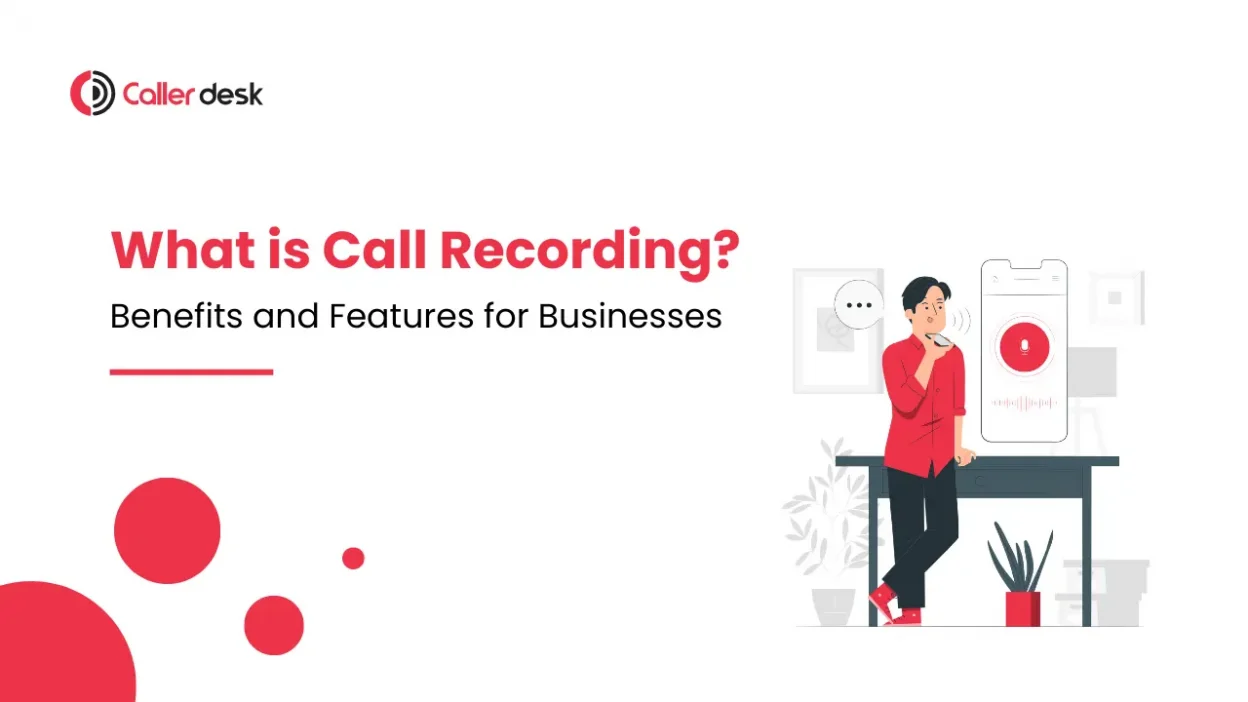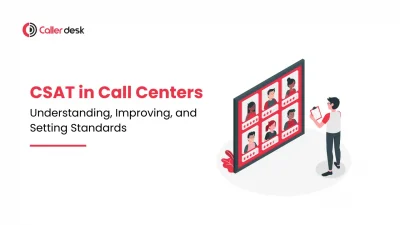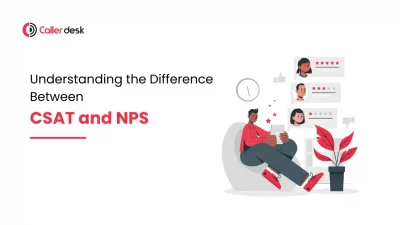Have you ever called a company and been impressed by how quickly your issue was resolved? Or have you wondered how businesses keep their customer service consistent? The secret often lies in call recording. This process captures and stores audio conversations between customers and representatives. Using technologies like cloud-based call recording systems, it becomes easy to record, store, and manage these recordings, leading to improved customer service and operational efficiency.
Why Call Recording Matters
Imagine being able to revisit every customer conversation to find out what went well and what didn’t. Call recording matters because it allows businesses to analyze these conversations, gain insights to improve products and services, and enhance the customer experience. It’s like having a playback option for every interaction, ensuring you never miss out on valuable information.
Key Benefits of Call Recording
1. Enhanced Customer Service
Identify Common Problems: Think about a time when you called customer service and had to explain your problem multiple times. Frustrating, right? Managers can listen to recorded calls to spot common issues that customers face. This helps fix these problems, making future calls smoother.
Train Employees: Real call recordings provide great examples for training. By listening to successful interactions, employees can learn to handle various calls better. It’s like having a library of real-life examples to learn from.
Ensure Consistency: Regularly checking recorded calls ensures that all employees follow high standards and procedures, leading to consistent service for all customers. Remember that time you got different answers from different reps? Call recording helps prevent that.
2. Compliance and Legal Protection
Meet Legal Standards: Imagine running a financial service where you’re required by law to keep records of all customer interactions. Call recording ensures that you meet these legal standards effortlessly.
Resolve Disputes: Ever had a situation where you disagreed with what a customer service rep told you? Having a recorded conversation can quickly clear things up, helping to resolve the dispute efficiently.
Keep Accurate Records: For audits, keeping accurate records of customer interactions is essential. Call recordings provide a reliable way to maintain these records, showing exactly what was communicated.
3. Quality Assurance and Training
Evaluate Performance: Managers can listen to recorded calls to accurately assess how well individual employees and teams are doing. This helps in spotting strengths and areas that need improvement.
Continuous Improvement: By regularly reviewing call recordings, businesses can identify skill gaps among employees and provide targeted training to address these gaps.
Share Best Practices: Successful strategies and techniques used in calls can be shared across the team, helping everyone to improve and deliver better customer service.
4. Data Analysis and Business Insights
Spot Trends: By analyzing recorded calls, businesses can identify common trends and patterns in customer questions and feedback, which can help in improving products and services.
Gauge Customer Sentiment: Listening to customer conversations helps understand their feelings, allowing businesses to adjust strategies to better meet customer needs.
Make Better Decisions: Insights gained from call recordings provide valuable data that can inform business decisions, making them more effective and customer-focused.
Features Offered by Call Recording Systems
1. Cloud Storage and Accessibility
Modern call recording systems often use cloud storage, offering:
Scalability: Easily add more storage as your business grows.
Remote Access: Access recordings from anywhere, anytime.
Security: Ensure recordings are securely stored with advanced encryption.
2. Automated Call Recording
Automated call recording ensures that no important conversations is dropped. The features include:
On-Demand Recording: Record specific calls as needed.
Scheduled Recording: Set times for automatic recording of all calls.
Selective Recording: Choose which calls to record based on criteria like caller ID or department.
3. Advanced Search and Retrieval
Easily find and retrieve specific call recordings with:
Keyword Search: Search recordings using keywords or phrases.
Call Tagging: Tag calls with relevant information for easy categorization.
Metadata: Use metadata like date, time, and duration for precise searches.
4. Integration with CRM and Analytics Tools
Integration with Customer Relationship Management (CRM) and analytics tools enhances the utility of call recordings:
CRM Integration: Link call recordings with customer profiles for a complete view.
Analytics Integration: Analyze call data alongside other business metrics for comprehensive insights.
Reporting: Generate detailed reports on call performance and customer interactions.
Practical Tips for Implementing Call Recording
Choose the Right System: Pick a call recording solution that fits your business needs and budget. Look for features like cloud storage, automated recording, and integration capabilities.
Inform Your Customers: Make sure customers know their calls may be recorded, as required by law. This can be accomplished via automated messaging at the start of the call.
Regularly Review Recordings: Continuously monitor and analyze recordings to improve customer service and compliance. Set a schedule for regular reviews and feedback sessions.
Train Your Team: Regularly educate staff on the significance and use of call records. Teach them how to manage recorded calls and use them to continually enhance their skills.
Conclusion
Call recording is a valuable asset for businesses, especially in call centers. It enhances customer service, ensures compliance, helps in training, and provides critical business insights. By using the features and benefits of call recording systems, businesses can optimize their operations and deliver superior service to their customers.





